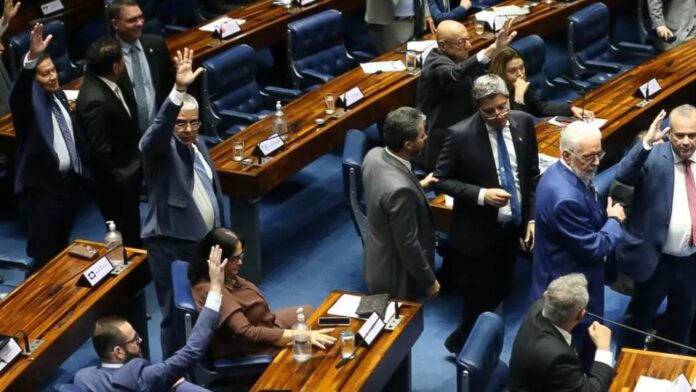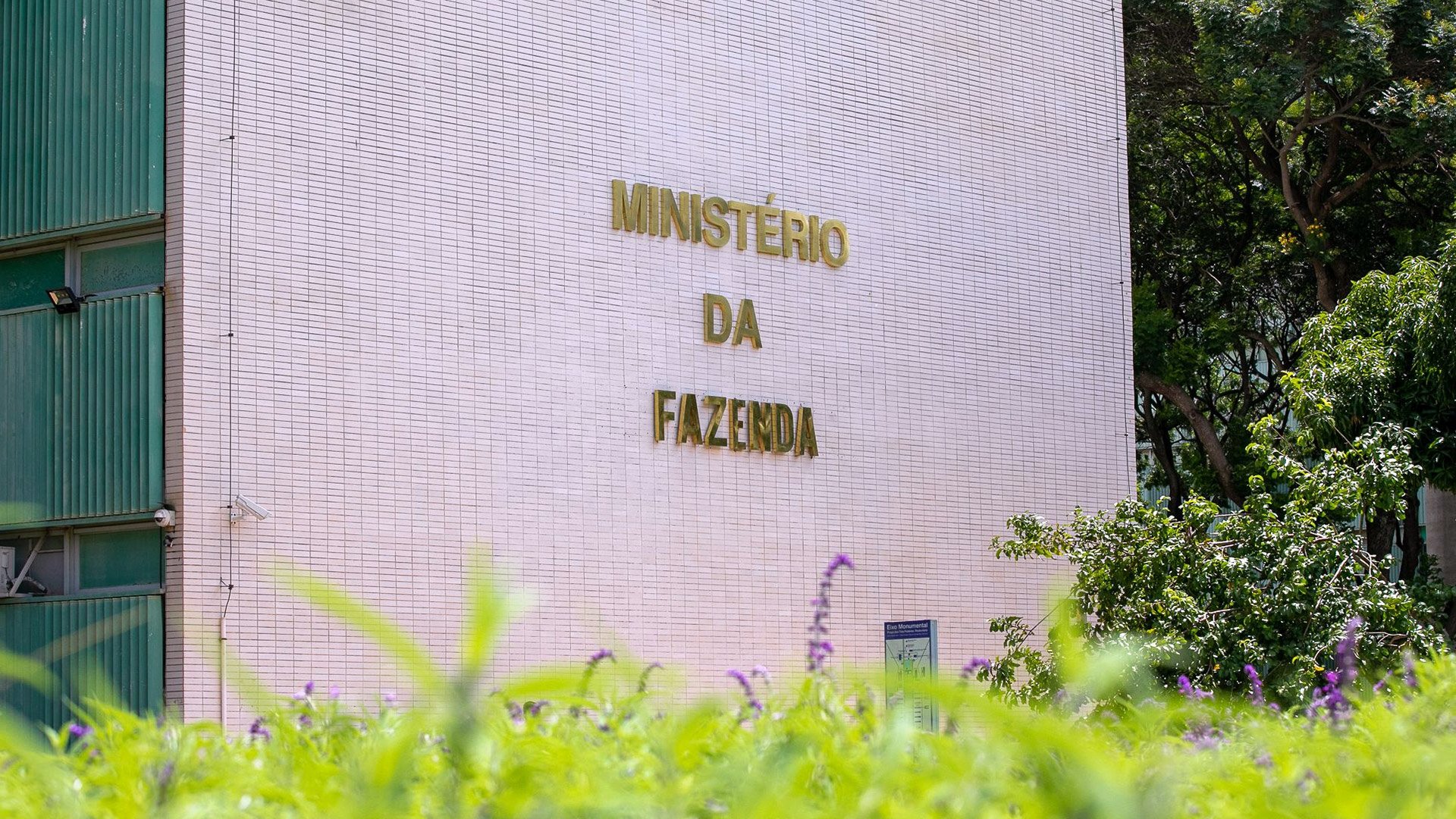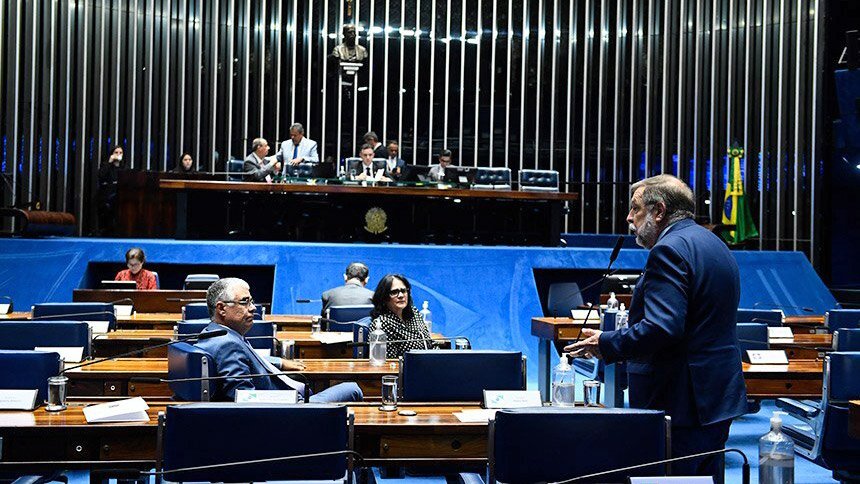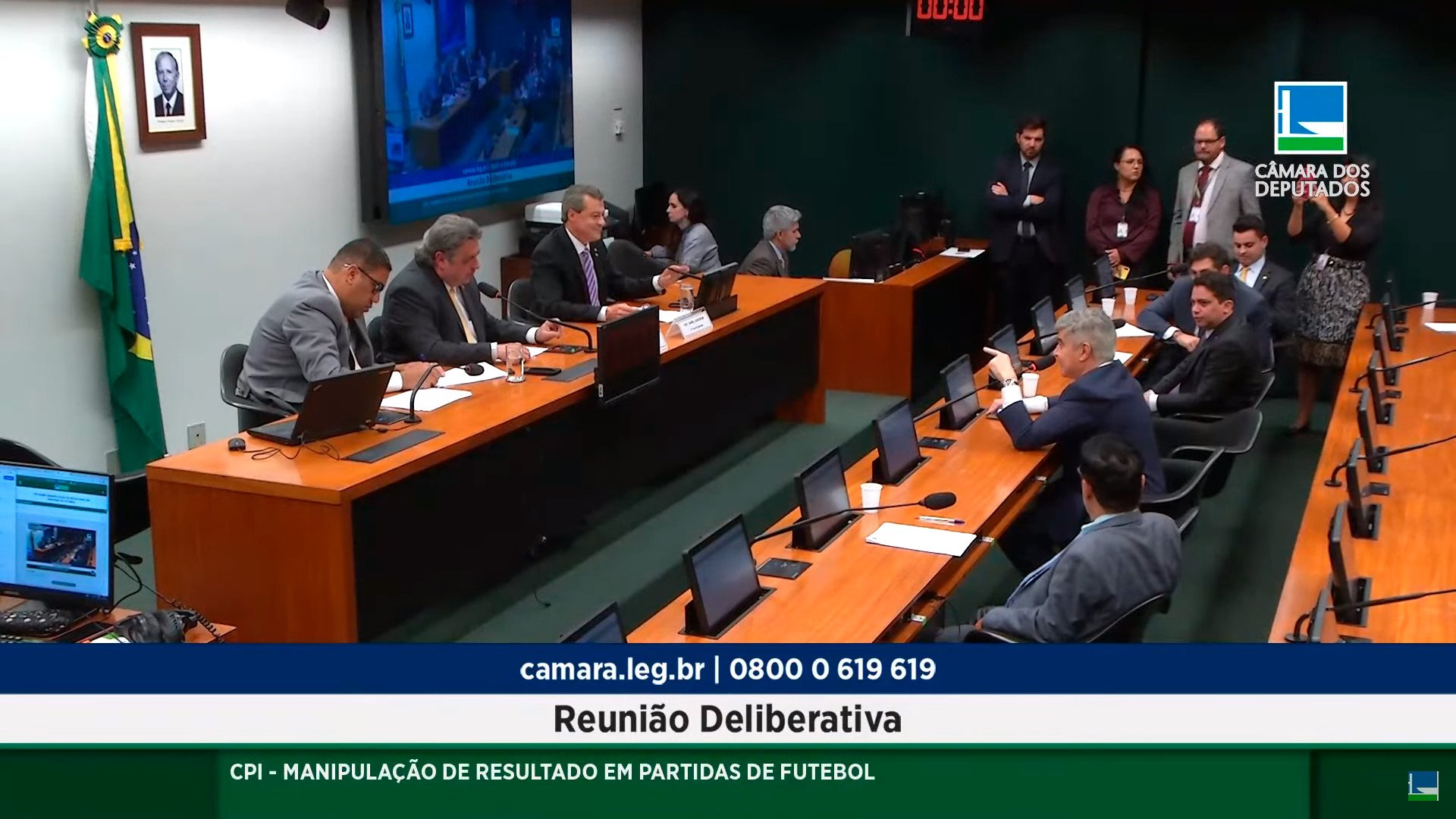The Senate plenary approved on Tuesday, December 12, the draft text of the bill to regulate sports betting with fixed odds. Bill 3.626/2023, from the Executive Branch, was approved through the report of Senator Angelo Coronel (PSD-BA). Click here to read the rapporteur’s new opinion.
Modified in the Senate, the text will return to the Chamber of Deputies for analysis. The approved document establishes a tax rate of 12% on the income of betting companies (a reduction of the 18% rate established by the Chamber of Deputies).
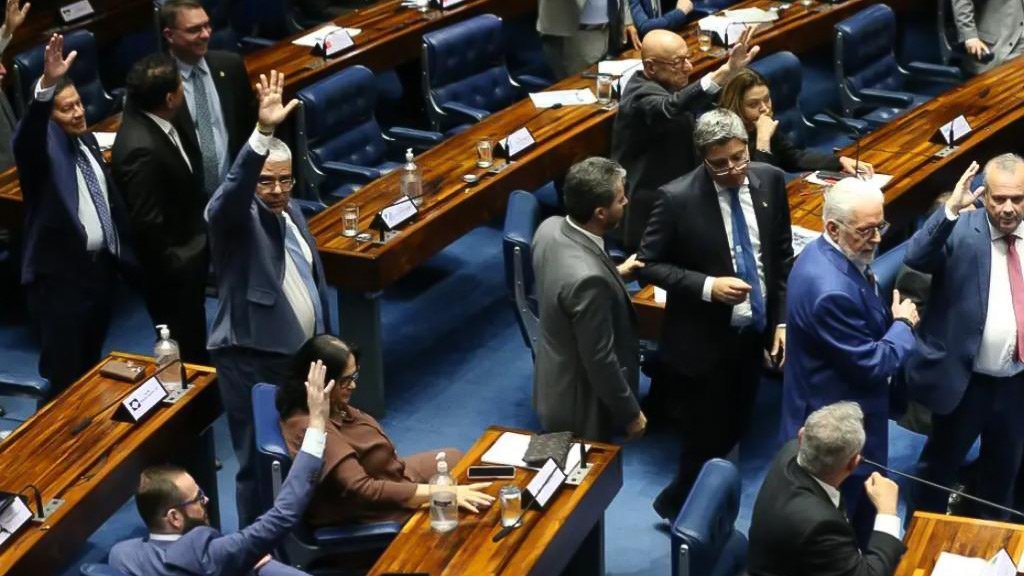
The income tax rate on winners’ winnings has been reduced from 30% to 15%, compared to the House text, and the current exemption range of BRL 2,212 has been exceeded. In addition, the senator accepted an amendment to change the income tax rate on fantasy sports winnings from 27.5% to 15%.
The federal government is quick to approve bills that favor its economic interests. Bill 3626/23 now returns to the Chamber of Deputies just 10 days before the end-of-year parliamentary recess. Finance Minister Fernando Haddad’s team expects to raise at least BRL 2 billion (about $400 million) through 2024 with the measure, but this requires the bill to be approved this year.
If an extraordinary legislative session is not called, the recess will be from December 23 to February 1.
Passage of the bill is essential in the Ministry of Finance's strive for zero deficit by 2024
Amendments
The basic text was approved in a symbolic – if not nominal – vote, with numerous votes against the opposition, and three amendments were considered, two of which were approved.
One of them, by Senator Tereza Cristina (PP-MS), expressly prohibits slot machines and land-based casinos, while the amendment by Senator Carlos Portinho (PL-RJ) excludes online gambling from the activities regulated in the bill.
This second amendment, according to government leaders, would make the bill lose weight, reducing revenues from about BRL 12 billion (about $2.4 billion) to BRL 4 billion ($808,152,000), according to sources consulted by Jota media.
By 36 votes in favor and 25 against, the senators decided to maintain the advertising of bets in sports stadiums and the sponsorship of athletes by gambling establishments – an amendment prohibiting these practices had been presented by Senator Eduardo Girão (Novo-CE) but was rejected.
Fixed fee
The text amends the law providing for the free distribution of prizes as advertising (Law 5,768 of 1971) and the law dealing with the destination of lottery and fixed odds lottery proceeds (Law 13,756 of 2018). The fixed odds lottery is a betting system that includes virtual online gaming events and real sporting events, such as soccer and volleyball matches, for example. In this modality, the bettor wins if he/she guesses a certain condition of the game or the final result of the match.
The bill establishes the taxation of betting company operators and winning bettors. Law 13,756 of 2018, which created this type of lottery, established that companies would keep 95% of gross revenues (after paying prizes and IRPF), while the bill allows 88%. The text also stipulates that operators must pay a license fee of up to BRL 30 million (USD 6 million) for the operation of betting.
Government opposition blocked the possibility of land-based casinos in the bill
According to the bill, fantasy sport, an e-sport in which disputes take place in a virtual environment, based on the performance of real people, does not constitute lottery exploitation. As such, the modality is exempt from authorization by public authorities.
Distribution of proceeds
Of the amount collected, 2% will be allocated to Social Security. Other recipients will be sports (6.63%) and tourism (5%).
In sports, the amounts will be distributed among the Ministry of Sports (4%), sportsmen (1.13%), and specific sports confederations, with percentages ranging from 0.05% to 0.4%. Half of the amount will go to the state sports departments, which will have to distribute the other half among the municipal sports departments, in proportion to the population of the city.
In tourism, 4% will go to the Ministry of Tourism and 1% to Embratur. Also according to the proposal, education will receive 1.82 percent of the proceeds. Within this amount, 0.82 percentage points will go to nursery schools or primary and secondary schools that have achieved the objectives of the national evaluation results. The remainder (1%) will go to public technical institutes.
Authorization
In order for the operating agent (i.e., the company that exploits the betting system) to operate, the future regulation will require authorization from the Ministry of Finance, which will be valid for up to five years and may be reviewed at any time. Legal entities will have to meet several requirements, such as having their registered and administrative headquarters in national territory, having at least one member of the control group with accredited knowledge and experience in gaming, betting, or lotteries, and meeting technical and cybersecurity requirements.
The administrative authorization procedure will be carried out by electronic means and, during its analysis, access will be restricted only to the interested party and whoever represents it. The authorization will only be issued if, after examining the documentation and assessing the technical and financial capacity of the company and the reputation and knowledge of its controllers and administrators, the Ministry of Finance concludes that all legal and regulatory requirements are met. A fixed amount of consideration, stipulated in the regulations (limited to R$30 million – $6 million), will also be paid.
Advertising
The electronic channels used by the operating agent must display information such as the number and date of publication of the authorization order, the physical address of its headquarters, and the contact details of its customer service and customer ombudsman.

Lottery communication and advertising actions, issued by operators, must include warnings to discourage gambling and warn about its harms, as well as respect the restriction of broadcasting schedules and channels. Advertising that presents gambling as socially attractive or that contains statements by well-known personalities suggesting that gambling contributes to social or personal success will be prohibited.
Advertising of unfounded claims about the odds of winning, or giving the impression that gambling can be an alternative to employment, a solution to financial problems, or a form of financial investment will also be prohibited. The text also prohibits operators from acquiring rights to sporting events for any form of sound and image exhibition.
Betting integrity
Sports events that are subject to fixed odds betting will have actions in place to mitigate match-fixing and corruption in live events, with bets that are proven to have been placed through match-fixing and corruption being void.
Bettors’ funds may not be pledged as collateral for debts incurred by the betting operator and the operating agent must adopt identification procedures to verify the validity of the identity of bettors.
Minors, persons with significant influence or employees of the betting operator, public agents with functions directly related to the regulation and supervision of the activity, persons who have or may have access to the lottery’s computerized betting systems, and any person who has or may influence the outcome of the lottery event, such as sportsmen and other participants, will be prohibited from betting.
CPI on manipulation of results in the Chamber of Deputies
Limitation period for bets
The bettor loses the right to receive his winnings or to request reimbursement if the payment due is not credited to his graphic account maintained with the operating agent and is not claimed by the bettor within 90 days from the date of the announcement of the outcome of the event that is the object of the bet.
Unclaimed winnings will revert 50% to the Student Financing Fund (Fies) and 50% to the National Fund for Public Disasters, Protection and Civil Defense (Funcap), subject to the financial and budgetary programming of the Federal Executive Branch.
Penalties
Violations will be investigated through an administrative process, with penalties for operators who violate the legal and regulatory norms, ranging from warnings to fines of up to 20% of the proceeds. According to the text, the fine may not be less than the advantage obtained by the offender and may not exceed BRL 2 billion ($404 million) per infraction.
Among the sanctions imposed may be the partial or total suspension of the exercise of activities for a period of up to 180 days, the revocation of the authorization, the prohibition to obtain new authorization for a period of up to 10 years, the prohibition to participate in bids for a period of not less than 5 years and the disqualification to act as administrator of a company that operates any type of lottery for a period of up to 20 years.
In the case of other natural or legal persons under public or private law, when it is not possible to use the criterion of what is collected in the case of fines, fines may range from BRL 50,000 reais to 2 billion (between $10,000 and $404 million) per infraction.
The Ministry of Finance may also refrain from initiating or suspend, at any stage before the adoption of the first instance decision, the administrative process aimed at investigating the offense in question, if the investigated party signs a compromise agreement in which it undertakes to cease the practice under investigation and correct the irregularities pointed out.
Report
The bill was approved in through the report, also by Angelo Coronel, which was previously approved by the Economic Affairs Commission (CAE), with amendments – the text was simultaneously processed by the Sports Commission (CEsp). Among the changes added in the CAE is the one proposing to increase from three to five years the duration of the authorization granted by the Ministry of Finance to the betting agent. As for the maximum amount of the operator’s commission, another amendment increases the limit from one to up to three trademarks to be operated by the legal entity in its electronic channels per act of authorization.
Also added to the text is the use of facial recognition technology to identify the identity of players and the taxation of net winnings for Personal Income Tax (IRPF) at 15%.
Among the amendments accepted is the one that provides for the operation of lotteries by the states and the Federal District, an activity authorized by the Supreme Court. In the case of fantasy sports, given the need for new sources of financing for social security and the regulation of a sector whose results are, although partially, random, the Social Contribution on Net Profits (CSLL) was increased to 12% for this sector.
Original article: https://www.yogonet.com/international/noticias/2023/12/13/70057-brazil-senate-approves-regulation-of-online-sports-betting-casinos-left-out-of-proposal









